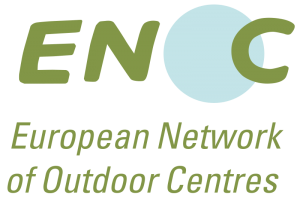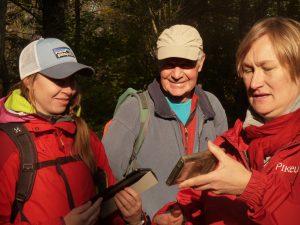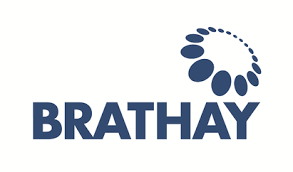 To promote the value of Outdoor Education Centres for Lifelong Learning across Europe
To promote the value of Outdoor Education Centres for Lifelong Learning across Europe
The European Network of Outdoor Centres (ENOC) is a special interest group of the European Institute for Outdoor Adventure and Experiential Learning (EOE). It was formed in 2012 with partner organisations in five countries- Slovenia, Germany, Finland, Poland and the UK.
ENOC’s aims are:
- To support outdoor learning for its own value as an active, practical, co-operative and lifelong approach to learning.
- To support outdoor learning as a means of delivering aspects of the school curriculum.
- To share a philosophy and good practice across outdoor centres.
- To develop new practice.
- To understand political and educational systems in European countries and how they influence outdoor learning.
ENOC focuses on:
- The philosophy of outdoor learning.
- Methods for teaching and learning.
- Professional Development.
- Research to support the points above.
Welcoming New Partners
The partner organisations have a wide experience of working in outdoor and environmental education and employ a variety of approaches based on adventure, problem-solving, scientific fieldwork, practical conservation and the arts.
ENOC Projects
Aesthetic Approaches to Outdoor Learning

We live in a world where we are bombarded with information and there is constant pressure to absorb and process it. The digital age has brought many benefits but also brought stress through promoting competition, commercialisation and an emphasis on self-image.
Time in nature frees us from the noise and pressures of everyday living. It allows us to slow down. Through sensory experiences, we can appreciate that we are part of and not apart from nature. It can open our minds, leading to curiosity and creativity.
Job Shadowing

The partners are committed to professional development through reflective practice, sharing of ideas, pedagogy and underpinning philosophy by fostering a community of connected and informed outdoor learning professionals with mobility and insight across Europe.
Some of the reasons ENOC values job shadowing are:
It allows you into the working life of your peers or another professional working in a different centre, country or situation. You to gain insight into different pedagogies, philosophies, employers and organisational cultures within the outdoor learning world.
It gives a different perspective on your own practice by learning from others’ experiences.
It expands your network and helps you to make professional contacts.
It gives you the chance to reflect on your own professional practice, values, culture and history.
It informs you about the daily joys, struggles, limitations of the larger profession.
Early Languge Development in Nature

The project Early Language Development in Nature (ELaDiNa) brought together two topics of early education: language development and children’s activities in nature. The main idea was to develop a generic model and educational material to support teachers using natural spaces for supporting language development. Language development is a crucial for general developmental and to a successful educational career.
The concrete outputs are four different documents:
- Generic model: The content will support pedagogues to implement language development activities with support of nature. There is strong rationale included in the document, together with strategies and case studies, why this approach is important
- Theoretical Handbook: The document provides theoretical contexts, findings of the project’s process and evaluation of the practical field trial. It presents the ELaDiNa generic model, developed and adjusted through international theoretical discourse and practical trials during the project. Its audience are academics, students, policy makers and practitioners
- Practical Handbook: It is intended for practical use. Methods, tools and guidelines are gathered and explained through selected activity plans. Educational practitioners are the main audience
- Training programme: It was developed and carried out with 40 experts, who gained new knowledge and skills on how to develop language in nature. The document is for experts who want to transfer ELaDiNa approach, methods and strategies to other experts
EU project card: https://erasmus-plus.ec.europa.eu/projects/search/details/2020-1-SI01-KA201-075971

Details to follow in 2023





